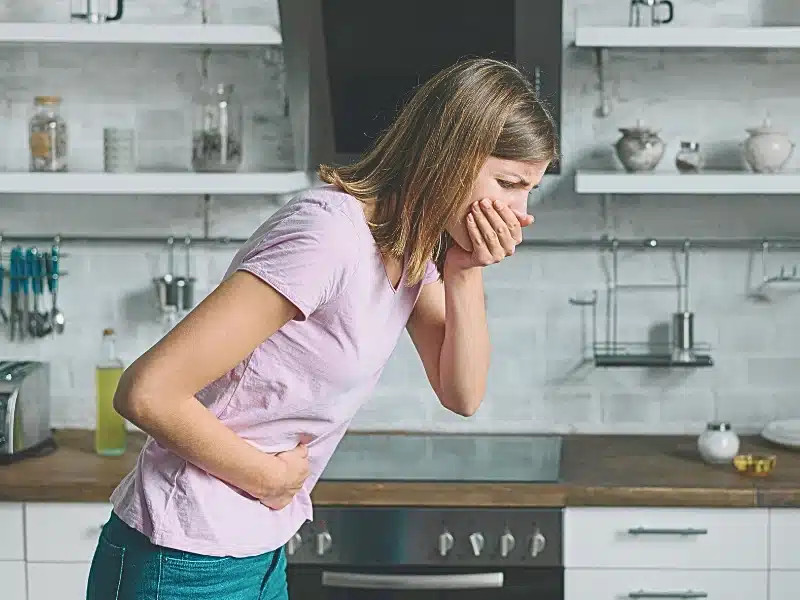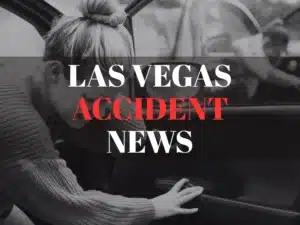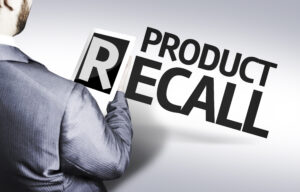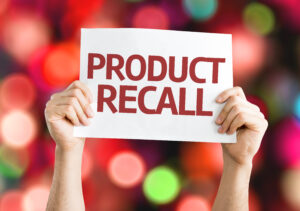In Nevada, it is possible to sue restaurants for food poisoning. This is an important issue to address given the many restaurants in the state and instances such as the health department’s temporary closure of the Wolfgang Puck Bar & Grill in Las Vegas. People who suffer from this type of poisoning can also sue grocery stores, supermarkets, and manufacturers that provide contaminated food. However, two elements making these cases tricky are proving the exact source of the poisoning and showing serious-enough damages.
Poisoning from a restaurant’s negligence can cause severe illnesses, even fatalities, and lasting health issues. Call George Bochanis Injury Law Offices at (702) 388-2005 to discuss your case.
Food Poisoning Claims Against Wolfgang Puck Restaurants
The Southern Nevada Health District closed Wolfgang Puck Bar & Grill at the MGM Grand in early January 2025 after an inspection revealed health code violations that led to 42 demerits.
Areas of concern included the restaurant, the prep kitchen, the bar, and the server station, among others. The inspection noted issues including pest control, possible food contamination, and possible cross-contamination. The restaurant reopened a few days after it passed another inspection.
No specific foodborne illness incidents have been linked to the closure, but these violations serve as an important reminder of food safety and restaurants’ responsibilities. Diners who suspect they got food poisoning from a restaurant with noted health code violations could be in a good position to seek legal action to receive compensation for their injuries.
Legal Options for Victims of Food Poisoning
You can sue a restaurant for food poisoning. Elements of food poisoning claims include:
- Duty of care and breach: Restaurants and food service providers owe a duty of care to provide patrons with safe and uncontaminated food.
- Causation: Claims should show a direct link between the food and the poisoning.
- Damages: Victims must incur actual damages from the poisoning, with common ones being medical expenses, lost wages, and pain and suffering.
Usually, causation is the trickiest aspect of these elements to prove. For one thing, foodborne illness symptoms might not show up right away, and multiple factors can contribute to an illness. It can also be tricky to determine when a restaurant causes your illness or if a hotel gives you food poisoning, perhaps through room service. Keep samples of food you suspect made you sick, if possible. These samples can help with later lab tests.
Building a strong case requires collecting medical records and other evidence, performing lab tests to identify the pathogen, and documenting the food you ate. One aspect that can make a claim stronger is if multiple people experience similar symptoms after dining at the same establishment.
Restaurant Insurance
Lawsuits do not necessarily have to happen in food illness cases. Restaurants’ general liability insurance and foodborne illness coverage can cover customers’ damages if they become sick due to contaminated food.
General liability insurance usually applies to bodily injury claims when diners become ill due to improper food handling, improper food storage, or other types of negligence. Meanwhile, product liability insurance may pay claims related to contaminated or spoiled food the restaurant serves. Workers’ compensation insurance can cover restaurant employees who suffer food poisoning.
However, insurance negotiations can be challenging. Insurers often try to minimize payouts or deny liability. Restaurants and insurers could argue that something else caused the poisoning and that there is not enough proof linking the illness to the restaurant.
In Nevada, two years generally is the statute of limitations for filing a personal injury lawsuit related to foodborne poisoning. Quick action, such as consulting a personal injury lawyer as soon as possible, can help with collecting and preserving evidence, making claims even more viable, and increasing the chances of a successful settlement or court verdict.
How a Food Poisoning Lawyer Can Help You Pursue a Claim in Las Vegas
The cases personal injury lawyers handle include those to do with food illness. These cases can be complicated to prove, and lawyers can help in many ways.
Evaluate Your Case
Is there enough evidence in your situation to pursue a claim in Las Vegas? Considerations when a lawyer evaluates your case include the extent of your damages, whether you sought medical treatment, if there was a diagnosis, and whether lab tests showed a foodborne pathogen’s presence.
The timing of your symptoms matters too, as does whether other causes of your illness, such as a virus or meal from another restaurant, could be ruled out. Lawyers assess if other patrons at the restaurant became sick and whether the eatery has a history of health violations. They may have to do some extra investigation before deciding to take a case, for example, checking for evidence of negligence at the restaurant.
Discussing the severity of your damages is important. Personal injury attorneys typically work on a contingency fee basis. They get paid only if you receive a settlement or win a lawsuit. With minimal damages, the compensation may not justify the time and effort a lawyer would expend to pursue the case.
- Medical expenses: If you did not seek treatment, proving the seriousness of your illness may not be possible. Likewise, nausea, stomach unease, or minor symptoms that resolved quickly might not meet standards to justify legal action. Strong cases often have hospital visits, doctor’s notes, lab tests, and medical bills, all of which also help prove financial loss.
- Lost income: Some cases of food illness can cause significant time off work and loss of income.
- Long-term damage: Long-term complications such as kidney damage from E. coli can show severe damages, even more lost income, and loss of future earning potential. Conversely, if you did not miss work at all or did not incur expenses, your damages may be too small for a lawyer to pursue.
- Pain and suffering: Severe food poisoning can cause extreme pain, dehydration, and hospitalization. However, mild discomfort may not lead to an obvious need for pain and suffering awards.
Some lawyers can and do still take cases with relatively low damages. This is more likely if the same outbreak affected multiple people (multiple claims or class action lawsuit), if a restaurant has a history of food safety violations (strengthening a case for punitive damages based on extraordinarily negligent or reckless behavior), or if the evidence of negligence is clear, such as spoiled food or dirty conditions out in the open.
You may have a lot of questions at your initial consultation. Ask about the lawyer’s experience in food cases and how to sue a restaurant for food poisoning.
Collect Evidence
Typical evidence in Las Vegas food poisoning cases includes medical records, witness statements, and inspection reports. Receipts, credit card statements, or order confirmations should help prove that you dined at the restaurant.
Communications with the restaurant, such as a complaint you made about the food and the restaurant’s response, could also come in useful. If you took photographs of the restaurant or of your meal, perhaps for social media, they might reveal evidence of mold in the food or unsanitary restaurant conditions. Testing any leftovers may reveal contaminants.
Consult Experts
A major part of what a foodborne illness lawyer does is collaborate with medical and food safety experts. Doctors and other medical professionals can offer insights into your diagnoses and treatments, and the long-term effects of the illness on you. This acts to clarify the direct links between the food you ate and your illness. These medical experts also could testify about your need for ongoing medical care and the effects of your condition down the road.
Meanwhile, lawyers may enlist food safety experts to review the restaurant’s food handling and storage practices. Incorrect cooking temperatures, cross-contamination, or unsanitary conditions point to negligence. These experts may testify, too.
Together, medical and food safety expertise may show causation, the extent of damages, and the restaurant’s liability in a lawsuit for food poisoning.
Offer Legal Advocacy
Personal injury lawyers negotiate with restaurants’ insurance companies to get fair settlements or represent victims in court if lawsuits occur. Foodborne illness claims are nuanced, involving various laws, regulations, and health codes, and cover areas such as liability and damages.
Lawyers have experience in negotiation and litigation. They can help clients through every stage of an insurance case or lawsuit for food poisoning to pursue the compensation they need to recover their losses. Of course, one issue to consider is when to hire a personal injury lawyer.
As early as possible is ideal. This is the case even if you believe the statute of limitations has passed. Some exceptions apply, and a lawyer can advise you on a way forward. Contact us today at George Bochanis Injury Law Offices.





